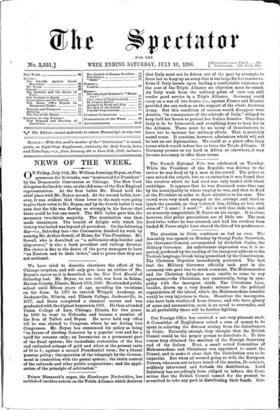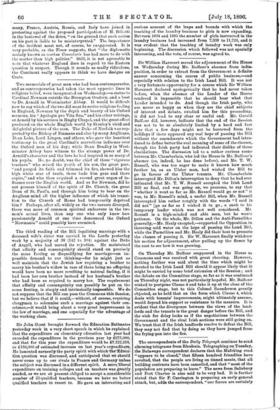Our Foreign Office has received a not very pleasant snub.
A Committee of Englishmen raised a sum of money to be spent in relieving the distress arising from the disturbances in Crete. Naturally enough, they thought that the British Consul would be the proper person to distribute it. To this course they obtained the sanction of the Foreign Secretary and of the Sultan. Next, a small mixed Committee of Mahommedans and Christians was appointed to assist the Consul, and to make it clear that the distribution was to be impartial. But when all seemed going so well, the European Powers, who seem not to have heard of the maxim, De minimis, suddenly intervened and forbade the distribution. Lord Salisbury has accordingly been obliged to inform the Cora- mittee that the British Consul cannot for the present be permitted to take any part in distributin their funds. Ger. many, France, Austria, Russia, and Italy have joined in protesting against the proposed participation of M. Biliotti in the bestowal of the doles, "on the ground that such action on his part is liable to be misinterpreted." Thc impcatance of the incident must not, of course, be exaggerated. It is very probable, as the Times suggests, that "the diplomatic malady known as morbus Consularis has had more to do with the matter than high politics." Still, it is not agreeable to note that whatever England does in regard to the Eastern question is suspect. Though it sounds so madly ridiculous, the Continent really appears to think we have designs on Crete.



































